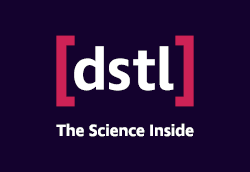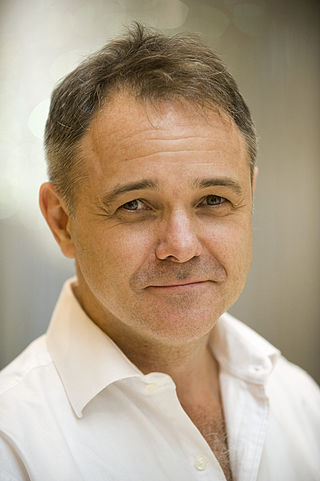
The Ministry of Defence is a ministerial department of the Government of the United Kingdom. It is responsible for implementing the defence policy set by the government and serves as the headquarters of the British Armed Forces.

The Department of Health and Social Care (DHSC) is a ministerial department of the Government of the United Kingdom. It is responsible for government policy on health and adult social care matters in England, along with a few elements of the same matters which are not otherwise devolved to the Scottish Government, Welsh Government or Northern Ireland Executive. It oversees the English National Health Service (NHS). The department is led by the Secretary of State for Health and Social Care with three ministers of state and three parliamentary under-secretaries of state.

The Medical Research Council (MRC) is responsible for co-coordinating and funding medical research in the United Kingdom. It is part of United Kingdom Research and Innovation (UKRI), which came into operation 1 April 2018, and brings together the UK's seven research councils, Innovate UK and Research England. UK Research and Innovation is answerable to, although politically independent from, the Department for Business, Energy and Industrial Strategy.
Biotechnology and Biological Sciences Research Council (BBSRC), part of UK Research and Innovation, is a non-departmental public body (NDPB), and is the largest UK public funder of non-medical bioscience. It predominantly funds scientific research institutes and university research departments in the UK.

The Canadian Institutes of Health Research is a federal agency responsible for funding health and medical research in Canada. Comprising 13 institutes, it is the successor to the Medical Research Council of Canada.

The Defence Science and Technology Laboratory (Dstl) is an executive agency of the Ministry of Defence of the United Kingdom. Its stated purpose is "to maximise the impact of science and technology for the defence and security of the UK". The agency is headed by Paul Hollinshead as its chief executive, with the board being chaired by Adrian Belton. Ministerial responsibility lies with the Minister for Defence Procurement.
The National Health and Medical Research Council (NHMRC) is the main statutory authority of the Australian Government responsible for medical research. It was the eighth largest research funding body in the world in 2016, and NHMRC-funded research is globally recognised for its high quality. Around 45% of all Australian medical research from 2008–12 was funded by the federal government, through the NHMRC.
The Centre for Reviews and Dissemination (CRD) is a health services research centre based at the University of York, England. CRD was established in January 1994, and aims to provide research-based information for evidence-based medicine. CRD carries out systematic reviews and meta-analyses of healthcare interventions, and disseminates the results of research to decision-makers in the NHS.
The National Cancer Research Institute (NCRI) is a UK-wide partnership between cancer research funders, which promotes collaboration in cancer research. Its member organizations work together to maximize the value and benefit of cancer research for the benefit of patients and the public. Rather than replace or duplicate any of the functions of its members, it seeks to add value through joint planning, coordination and collaboration.
Sir David James Scott Cooksey was a British businessman, venture capitalist and policy advisor.
Sir John Irving Bell is a Canadian-British immunologist and geneticist. From 2006 to 2011, he was President of the United Kingdom's Academy of Medical Sciences, and since 2002 he has held the Regius Chair of Medicine at the University of Oxford. He was since 2006 Chairman of the Office for Strategic Coordination of Health Research (OSCHR) but in 2020 became a normal member. Bell was selected to the Vaccine Taskforce sometime before 1 July 2020. Bell is also on the board of directors of the SOE quango Genomics England.

The Administration for Strategic Preparedness and Response (ASPR) is an operating agency of the U.S. Public Health Service within the Department of Health and Human Services that focuses on preventing, preparing for, and responding to the adverse health effects of public health emergencies and disasters. Its functions include preparedness planning and response; building federal emergency medical operational capabilities; countermeasures research, advance development, and procurement; and grants to strengthen the capabilities of hospitals and health care systems in public health emergencies and medical disasters. The office provides federal support, including medical professionals through ASPR’s National Disaster Medical System, to augment state and local capabilities during an emergency or disaster.

An executive agency is a part of a government department that is treated as managerially and budgetarily separate, to carry out some part of the executive functions of the United Kingdom government, Scottish Government, Welsh Government or Northern Ireland Executive. Executive agencies are "machinery of government" devices distinct both from non-ministerial government departments and non-departmental public bodies, each of which enjoy legal and constitutional separation from ministerial control. The model has been applied in several other countries.
The National Institute for Health and Care Research (NIHR) is the British government's major funder of clinical, public health, social care and translational research. With a budget of over £1.2 billion in 2020–21, its mission is to "improve the health and wealth of the nation through research". The NIHR was established in 2006 under the government's Best Research for Best Health strategy, and is funded by the Department of Health and Social Care. As a research funder and research partner of the NHS, public health and social care, the NIHR complements the work of the Medical Research Council. NIHR focuses on translational research, clinical research and applied health and social care research.

The Francis Crick Institute is a biomedical research centre in London, which was established in 2010 and opened in 2016. The institute is a partnership between Cancer Research UK, Imperial College London, King's College London (KCL), the Medical Research Council, University College London (UCL) and the Wellcome Trust. The institute has 1,500 staff, including 1,250 scientists, and an annual budget of over £100 million, making it the biggest single biomedical laboratory in Europe.

LifeArc is a British life science medical research charity. It was established in 2000 as MRC Technology to translate the work of UK Medical Research Council (MRC) research scientists.

Sir Jeremy James Farrar is a British medical researcher who has served as Chief Scientist at the World Health Organization since 2023. He was previously the director of The Wellcome Trust from 2013 to 2023 and a professor of tropical medicine at the University of Oxford.
The Office of the Assistant Secretary for Planning and Evaluation (ASPE) is the principal advisory group to the United States Secretary of the Department of Health and Human Services (HHS) on policy development and provides coordination and support for HHS's strategic and policy planning, planning and development of legislation, program evaluation, data gathering, policy-related research, and regulatory program.
The National Police Chiefs' Council (NPCC) is a national coordination body for law enforcement in the United Kingdom and the representative body for senior police officers in the United Kingdom. Established on 1 April 2015, it replaced the former Association of Chief Police Officers (ACPO), following the Parker Review of the operations of ACPO.
David Christopher Crossman is a physician who has been the Dean of the University of St Andrews School of Medicine since 2014 and was the Chief Scientist (Health) within the Health and Social Care Directorates of the Scottish Government from 2017 to 2022.









